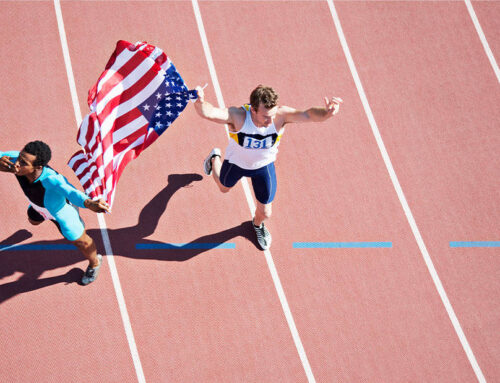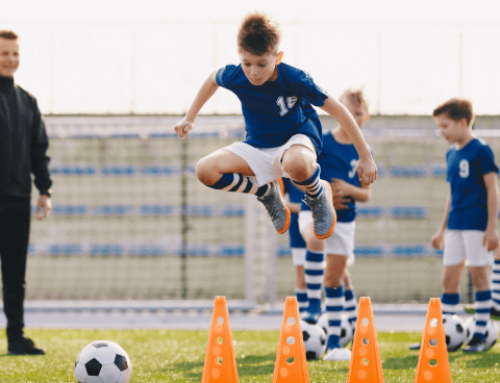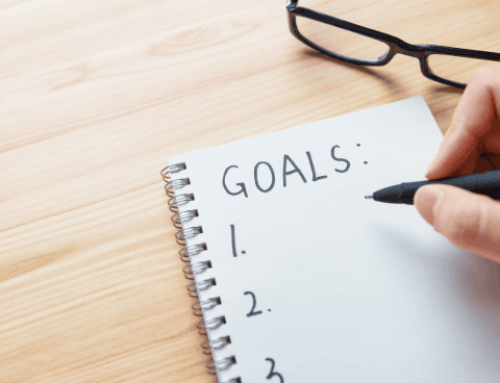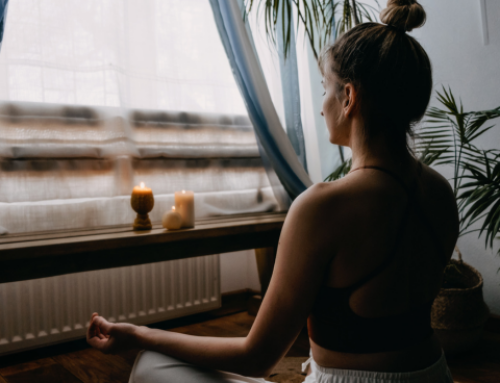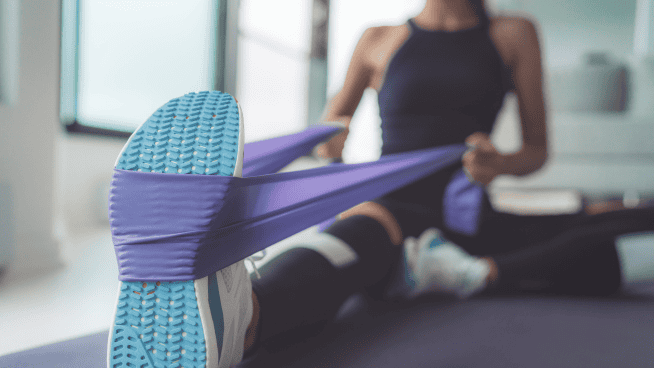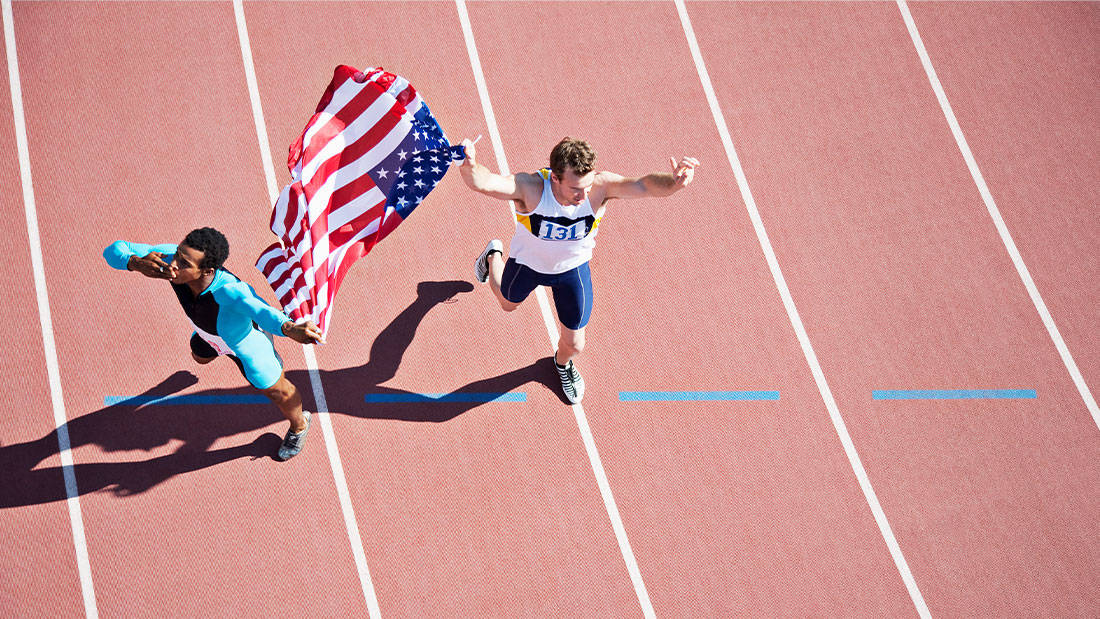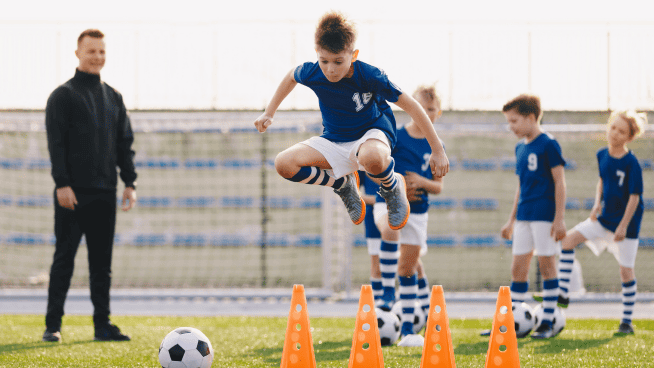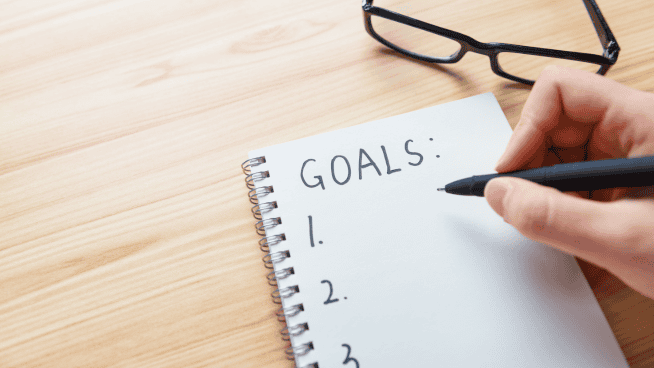How to Mentally Prepare for Tryouts

The demand for high expectations can set anyone up for failure, especially for youth athletes who are not mentally tough or not accustomed to being pushed into a level of discomfort, like tryouts.
For some, participating in strenuous activities brings a stressful sense of urgency in the form of stage fright, headaches, continuous perspiration, numerous trips to the bathroom (all forms of anxiousness, nervousness, and scared feelings) performance anxiety equating to the pressure to perform.
The expectation of performance and fear of failure cripples athletes at all levels due to the worthiness of impressing a coach, parent, siblings, scouts, and teammates, often sometimes sabotaging their performance due to a lack of confidence.
Developing concrete yet consistent strategies to counteract mental setbacks can help athletes have a better experience while succeeding in their sport. In addition, assisting an athlete in identifying various triggers can help change how an athlete performs. For example, some strategies might come from practicing with those (parents, teammates, or friends from an opposing team) willing to participate, or mindset strategies that will help the athlete focus on the task and not comparison.
More importantly, talking to experienced athletes who have been in similar positions should document a consistent strategy, a plan of preparation “drills and exercises” to encourage success. Furthermore, having a plan is vital in keeping yourself calm and focused, which will enhance your capabilities despite your feelings.
Concentration, calmness, and confidence also can help one avoid the traps of focusing on the wrong things before and during the tryouts. Instead, focus on what you can control, and things might come to you easier because nothing can be achieved without practice.
Here are several tips to help anyone have success during tryouts.
Get a good night’s sleep; at least 8 hours.
Athletes that train and participate in games should sleep about an hour extra, when applicable.
Make Film study a priority.
A visualization mindset is a vital tool used by highly successful people.
Drink plenty of water, consume fruits and veggies.
Water is most healthful; more importantly, athletes can stay hydrated by adding fruits and vegetables.
Get a massage or stretch therapy.
Massages improve an athlete’s range of motion, soft tissue function, athletic performance, and decrease delayed onset muscle soreness, in addition to stiffness and fatigue after a performance.
Hit the weight room; it breeds confidence.
Exercise will certainly boost your self-esteem.
Don’t focus on your competition.
Focusing on your competition prevents original ideas and creativity. As a result, you are missing out on the best athlete you could be.
Know your weaknesses.
Knowing your weaknesses is equal to knowing your strengths for success.
Pay attention to what’s going on.
Distractions often derail individuals; therefore, directing your attention to your priorities will allow you to accomplish the unthinkable.
Listen to feedback.
It’s not uncommon to hate constructive criticism; however, criticism can be your best lesson. It’s a sign that someone loves you and cares.
Be coachable.
Coaches love coachable athletes; it improves their willingness to learn, takes your ability to the next level, and helps you attain achievable goals.
Understand The Power of Self Talk
Self-talk can assist in correcting negative thoughts and coping during difficult tryouts. Self-encouragement can go a long way before and after. It allows one to accomplish obtainable goals.
Have fun!
Always have the mindset to learn and increase in established mental abilities.
CLICK HERE to learn more about mental health in sports or HERE for more about tryouts.
RECOMMENDED FOR YOU
MOST POPULAR
How to Mentally Prepare for Tryouts

The demand for high expectations can set anyone up for failure, especially for youth athletes who are not mentally tough or not accustomed to being pushed into a level of discomfort, like tryouts.
For some, participating in strenuous activities brings a stressful sense of urgency in the form of stage fright, headaches, continuous perspiration, numerous trips to the bathroom (all forms of anxiousness, nervousness, and scared feelings) performance anxiety equating to the pressure to perform.
The expectation of performance and fear of failure cripples athletes at all levels due to the worthiness of impressing a coach, parent, siblings, scouts, and teammates, often sometimes sabotaging their performance due to a lack of confidence.
Developing concrete yet consistent strategies to counteract mental setbacks can help athletes have a better experience while succeeding in their sport. In addition, assisting an athlete in identifying various triggers can help change how an athlete performs. For example, some strategies might come from practicing with those (parents, teammates, or friends from an opposing team) willing to participate, or mindset strategies that will help the athlete focus on the task and not comparison.
More importantly, talking to experienced athletes who have been in similar positions should document a consistent strategy, a plan of preparation “drills and exercises” to encourage success. Furthermore, having a plan is vital in keeping yourself calm and focused, which will enhance your capabilities despite your feelings.
Concentration, calmness, and confidence also can help one avoid the traps of focusing on the wrong things before and during the tryouts. Instead, focus on what you can control, and things might come to you easier because nothing can be achieved without practice.
Here are several tips to help anyone have success during tryouts.
Get a good night’s sleep; at least 8 hours.
Athletes that train and participate in games should sleep about an hour extra, when applicable.
Make Film study a priority.
A visualization mindset is a vital tool used by highly successful people.
Drink plenty of water, consume fruits and veggies.
Water is most healthful; more importantly, athletes can stay hydrated by adding fruits and vegetables.
Get a massage or stretch therapy.
Massages improve an athlete’s range of motion, soft tissue function, athletic performance, and decrease delayed onset muscle soreness, in addition to stiffness and fatigue after a performance.
Hit the weight room; it breeds confidence.
Exercise will certainly boost your self-esteem.
Don’t focus on your competition.
Focusing on your competition prevents original ideas and creativity. As a result, you are missing out on the best athlete you could be.
Know your weaknesses.
Knowing your weaknesses is equal to knowing your strengths for success.
Pay attention to what’s going on.
Distractions often derail individuals; therefore, directing your attention to your priorities will allow you to accomplish the unthinkable.
Listen to feedback.
It’s not uncommon to hate constructive criticism; however, criticism can be your best lesson. It’s a sign that someone loves you and cares.
Be coachable.
Coaches love coachable athletes; it improves their willingness to learn, takes your ability to the next level, and helps you attain achievable goals.
Understand The Power of Self Talk
Self-talk can assist in correcting negative thoughts and coping during difficult tryouts. Self-encouragement can go a long way before and after. It allows one to accomplish obtainable goals.
Have fun!
Always have the mindset to learn and increase in established mental abilities.
CLICK HERE to learn more about mental health in sports or HERE for more about tryouts.

